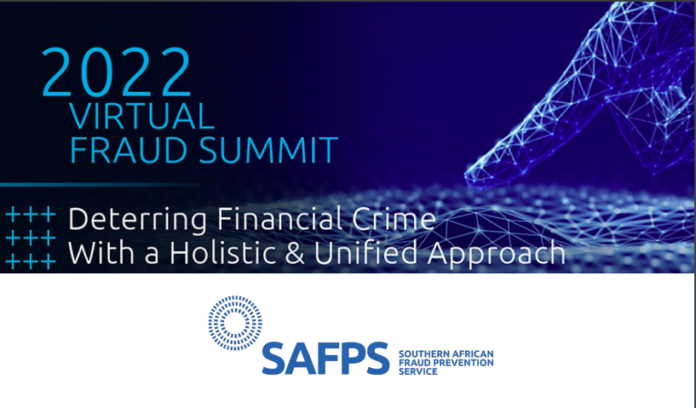Over the past two years, South Africa has been hard at work to address the economic challenges that have been created by the Covid-19 Pandemic. The fragility of the economy has been exposed with unemployment rising and the country’s Energy Crisis worsening.
“While these are massive risks that we need to address, the instances of cyber crime and hacks are increasing. According to recent reports, South Africa ranks among the top 10 countries in the world in terms of cybercrime. According to research done by IBM, a data breach in South Africa costs an average of R36.5 million, and the long tail costs of a data breach can be felt for years after the incident. South Africa ranked 7th out of 16 countries polled for the highest cost of a cyber breach. This, and many other alarming statistics, will be discussed at the SAFPS Fraud Summit which will be held virtually on 18 May,” says Manie van Schalkwyk, CEO Southern African Fraud Prevention Service (SAFPS).
An active playing field
The Summit on 18 May is being held off the back of major data breaches that have rocked South Africa over the past two years.
“The SAFPS cannot stress enough how severe these data breaches are and how they turn consumers lives upside down. The livelihood of South Africans is at stake. It is important that we start taking active steps to address these risks. This will be topic of conversation at this year’s summit,” says Van Schalkwyk.
Living in a world driven by risk
The 2022 Fraud Summit will be chaired by Jane Dutton who will be the Programme Director. Dutton is an accomplished journalist who has covered many of the major stories that appear in the International and South African media.
Clem Sumter will be delivering the keynote address at the summit. As a prolific scenario planner and futurist, Clem will apply his vast knowledge to discuss living in a world of increasing digital risk.
Sunter will be followed by David Pegley who is the CEO of the Australian Financial Crimes Exchange who will be discussing: a “new world” which requires new measures & collaboration to manage evolving criminal activity.
A biometric lifeline
One of the ways to prevent a person or business from becoming a victim of cybercrime is through the secure use of biometric technology. This will be discussed by Dalene Deale Executive Head of Secure Citizen.
“Being the digital arm of the SAFPS, Secure Citizen is committed to protecting consumers as well as businesses. By using biometrics, we’ve made fraud prevention convenient, easy to use and cost effective. It is every consumer’s right to use their biometrics to verify themselves and now businesses can afford to implement it to protect themselves and the customers they serve, regardless of their size,” says Deale.
Financial institutions are massive targets
As pointed out earlier, financial institutions are massive targets to cyber criminals because of the information that they hold.
“The protection of personal information is becoming a major issue,” says Van Schalkwyk, “consumers need to know that the information that they and over to banks and other financial institutions will be handled in a responsible manner and that the data leaks that we experienced last year cannot be a regular occurrence.”
Garth de KLERK, CEO of the Insurance Crime Bureau, Dr Jerry Chetty Senior Manager of the Santam Business Integrity Unit, and Prof Danny MYBURGH MD of Cyanre will focus on the risks that financial institutions face.
There will also be a panel discussion which will include Jean van Niekerk who is the Strategy Manager at ABSA, Louis Hennings who is the Head of Integrated Financial Crime Risk Management at NEDBANK, Lana van Zyl who is the Forensic Services Manager at TFG, and Smile Ndlovu who is the Head of Group Forensics at Telkom. The topic of the panel discussion will be new fraud trends and modus operandi.
A new environment
“One of the trends that we have seen during the Covid-19 Pandemic is that there is a definite shift towards online consumerism and that there needs to be a significant adjustment in the shaping of business post Covid-19. This applies not only to consumers, but to companies and those who fight against fraud. At the end of the day, there is no substitute for awareness and vigilance. As always, the SAFPS urges consumers to be vigilant when it comes to fraud and to remain cognisant of the fact that they face increased risk of becoming victims,” says Van Schalkwyk.
ISSUED FOR AND ON BEHALF OF Southern African Fraud Prevention Service (SAFPS) BY:
LOLA LAZARUS
OF BULLION PR & COMMUNICATION
CELL: 083 271 5336
EMAIL: [email protected]
SAFPS HELP-LINE: 0860 101 248
COMPLIMENTARY REGISTRATION FOR MEDIA AVAILABLE ON REQUEST.












